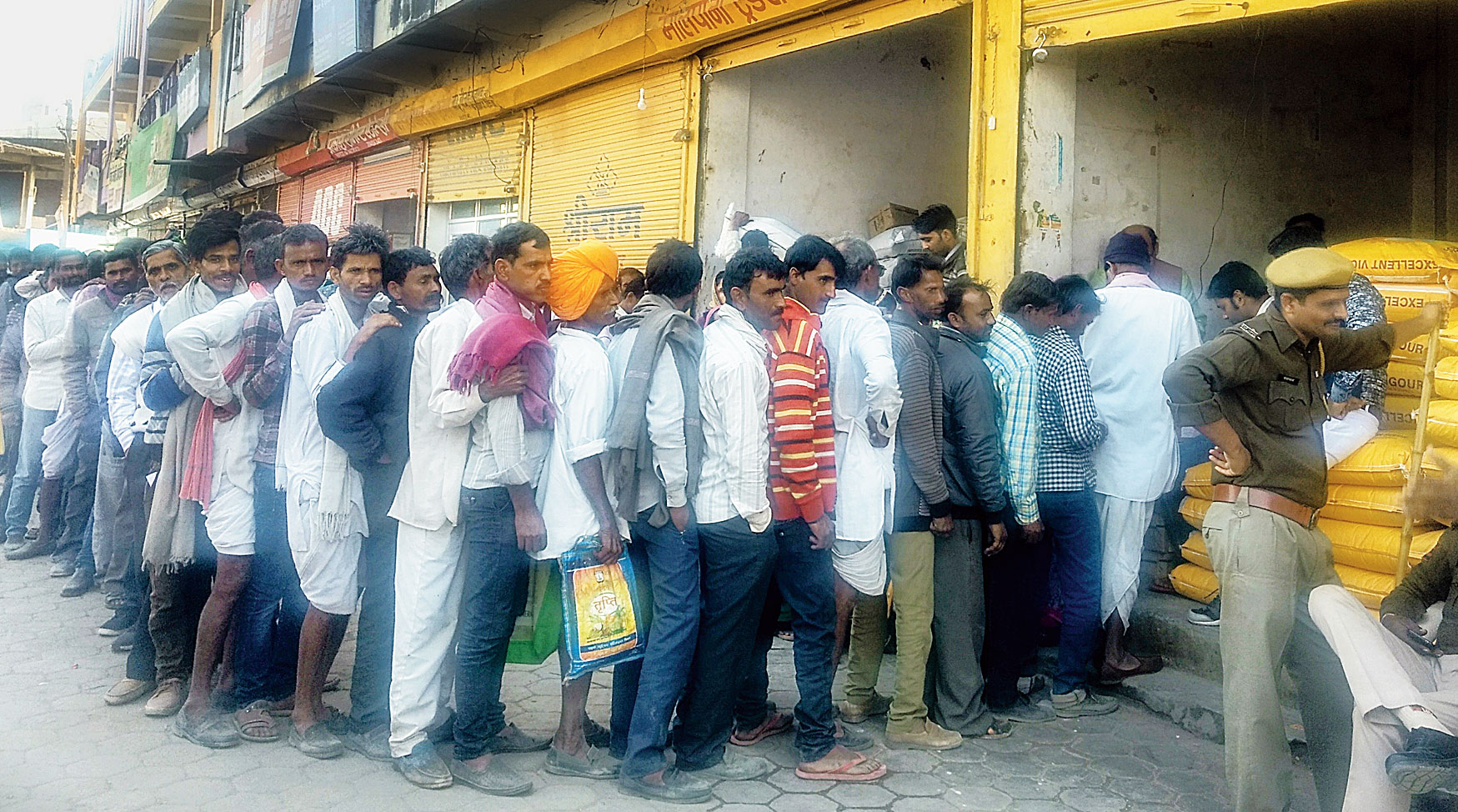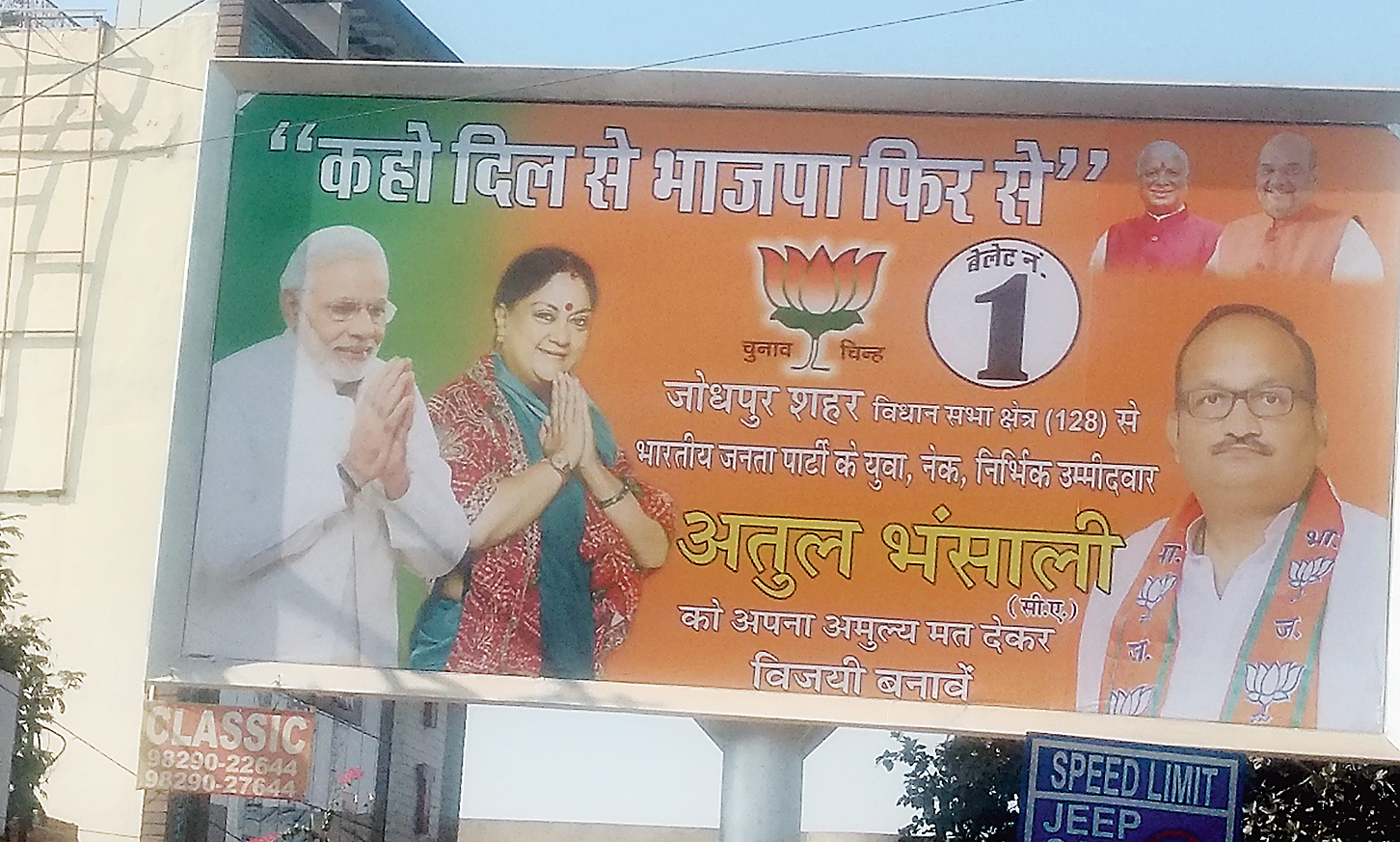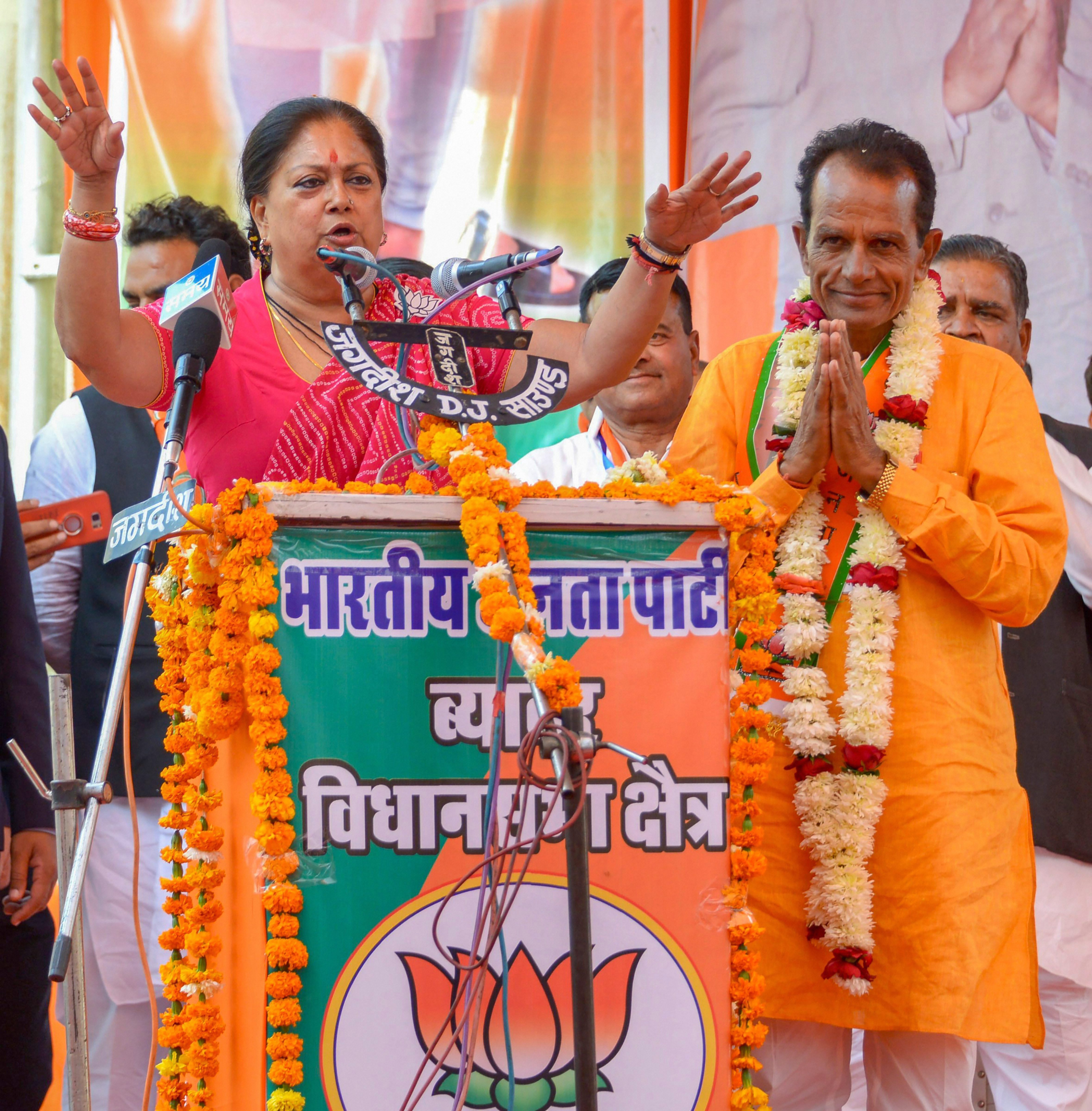Rajasthan’s people had made up their mind to vote out the “non-performing” Vasundhara Raje government, says Rajesh Kumar, a driver in Kota. But close to the December 7 elections, he claims, the BJP has suddenly bounced back.
“People have begun to say that under Narendra Modi and the BJP, there have been no bomb blasts; the country has been secure…. People have begun rethinking,” he said.
Rajesh believes that the BJP may still lose, given the simmering anti-incumbency, but “the contest has become close”.
He predicted the BJP would win 80 to 90 seats and the Congress 90 to 100 in the 200-member House, making the role of the others crucial during government formation. It’s a view shared widely across the state, particularly in the urban pockets.
As polling day approaches, the BJP has been campaigning aggressively, spreading the perception of a neck-and-neck contest.
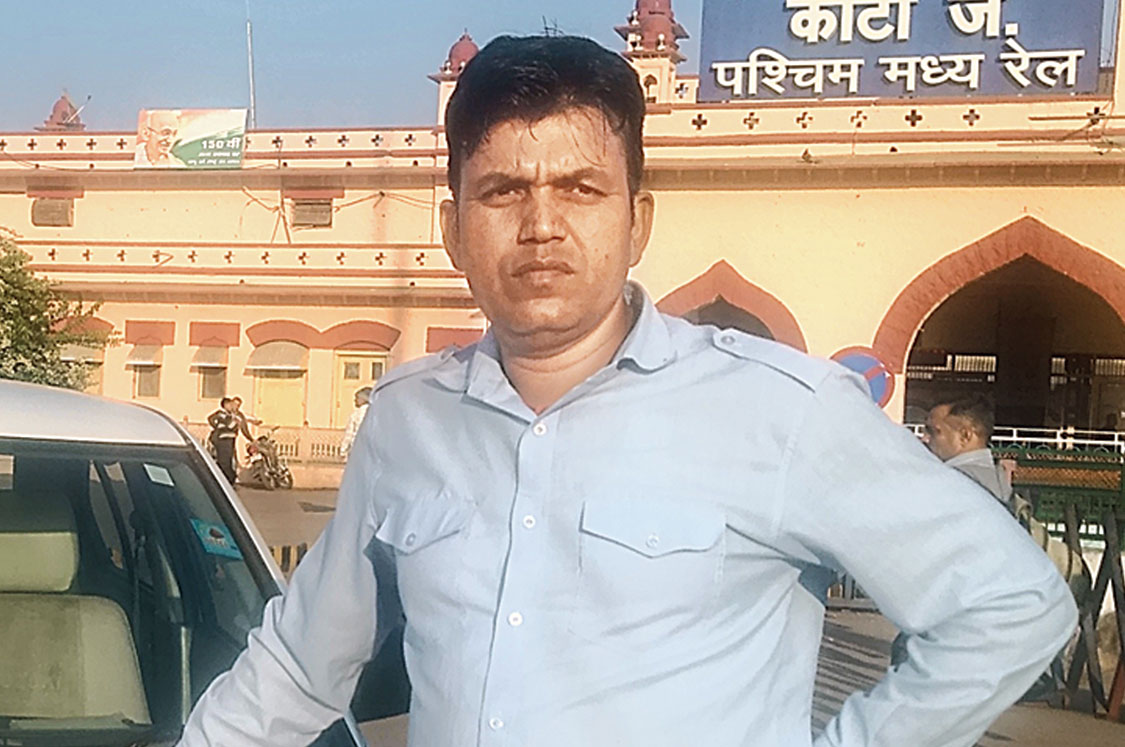
Rajesh Kumar Picture by JP Yadav
Led by Prime Minister Modi, party president Amit Shah and Uttar Pradesh chief minister Yogi Adityanath, BJP campaigners are talking of terrorism and the Ram temple to try and counter the anti-incumbency over livelihood issues. From what Rajesh said, it appears the BJP’s campaign is having an impact.
During the 90km drive from Kota to Jhalawar, Rajesh indicated that the perception of a keen contest is possibly being driven by a silent campaign on the ground, particularly by RSS cadres.
“People are saying that a BJP defeat will lead to a spurt in terrorism. They are also saying that Hindus’ honour will take a hit,” he said.
Rajesh, a native of Gwalior in neighbouring Madhya Pradesh, settled down in Kota 18 years ago. He belongs to the backward Kushwaha caste and had begun looking for a job after failing his Class X boards. The father of two owns two taxis and drives one of them himself.
“Small businessmen like me have suffered the most under the BJP,” he said, citing a post-2014 rule that requires the owners of commercial vehicles to deposit taxes for 10 years at one go.
“I had to deposit around Rs 2 lakh for my two taxis. I had to take loans from friends and relatives and haven’t been able to repay the full amount yet,” he said. “Does any passenger vehicle run for 10 years?”
Rajesh, however, added that he had not yet decided who to vote for.
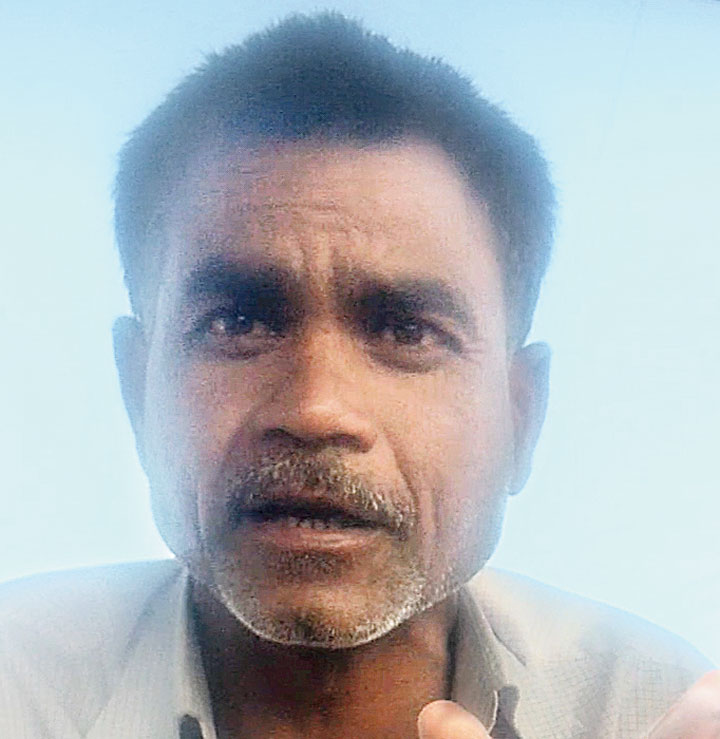
Balchand Jogi Picture by JP Yadav
At a tea and snacks shop, an elderly customer brought up the Hindu factor. “After Modi, Yogi should become Prime Minister. The Congress has destroyed the country,” he said, declining to be named on the ground that he was a state government employee.
Unseen by him, his son-in-law, a trader in Kota, shook his head disapprovingly and whispered: “You can write it down, the Congress is winning.”
A day earlier, Adityanath had addressed several rallies in Kota district, seeking to paint the Congress as pro-Muslim. He claimed that Hindus were finally uniting in Rajasthan, and so the BJP should win.
Suket village, just ahead of Jhalawar, was bristling with competing green and saffron flags. Residents claimed the village was split 50:50 between Hindus and Muslims, and every festival of either community stoked tensions.
“It’s very simple here: the Hindus vote for the BJP and the Muslims for the Congress,” said Govind Chopra, a villager.
In Patan market, which falls in Vasundhara Raje’s constituency, a group of labourers sat on large stone blocks under a tree at a corner, waiting to be hired for the day by the stone factories. They were a motley crowd of Brahmins, Dalits, backward castes and Muslims, all feeling the sting of a drying up of jobs.
All of them predicted that Vasundhara would win from Jhalrapatan and praised her for doing “a good job” in the constituency. But they were unsure about her returning to power.
The discussion veered towards matters of faith and jobs, which are dominating the political discourse.
Kamal Sharma, a poor Brahmin, wanted a Ram temple built without delay in Ayodhya and castigated Rahul Gandhi for “calling Hindus terrorists”.
Puri Lal, a Dalit, joined in to say that the temple should be built so that the divisive issue ended once and for all.
Kailash Sharma, another Brahmin, asked: “If not in Ayodhya, where will a Ram temple be built?”
The lone Muslim in the crowd, a meek looking Shabbir Mohammad, said he too wanted a Ram temple at the earliest. “Let’s get this over with,” he said.
Most people in the crowd agreed that Modi was working very hard for the country and deserved a second term. Shabbir nodded.
The crowd praised Modi’s “Ujjwala” scheme to provide cheap cooking gas to the poor but complained that the prices had increased, making the subsidy insufficient.
The demonetisation, they felt, was a bold move that had failed because of corrupt bank officials who, in the words of Dhani Tanwar, “colluded to turn black money white”.
A while later, all of them complained about the lack of jobs, especially at a time when the advent of tiles had lowered the demand for Kota stones. “Jobs have decreased sharply,” said Sambhu Netar, a Dalit.
When this correspondent asked which mattered more, the temple or jobs, Kamal Sharma cut in at once: “We want both.”
Balchand Jogi, a Dalit, rebutted him: “The main issue is jobs. There’s too much unemployment. Neither Ram nor Rahim is giving us anything; neither a temple nor a mosque is giving us anything.”
Many others nodded as Jogi added: “The main issue for which we elect leaders is to ensure we get jobs to feed our wives and children. All other issues — Ram, Rahim, temple or mosque — are useless.”
A short distance away in the middle of the market, a long queue of farmers waited outside a government dealer’s shop to buy urea.
“We have been standing here since last night. Urea is selling at black-market prices,” said Bhawani Rathore as policemen tried to control the angry farmers.
But hasn’t the Modi government claimed that the black market in essential fertilisers has disappeared after the urea was neem-coated?
“The politicians only make tall speeches, but the farmers are distressed,” said Rajendra Sharma.
On the road, a BJP campaign vehicle blared how the pro-poor schemes of the Modi and Vasundhara Raje governments had transformed the lives of the people.
Correction
A report, “Gehlot ‘guile’ vies with PeeCee glamour”, in Sunday’s edition of this newspaper mistakenly referred to expelled Congress rebel Gopal Gehlot as a former district president of the party in Bikaner. Gehlot had never headed the Congress’s Bikaner district unit. We apologise for the mistake.

